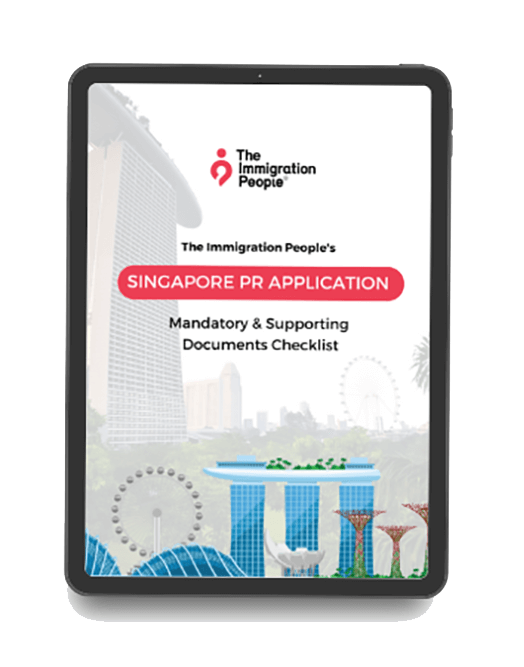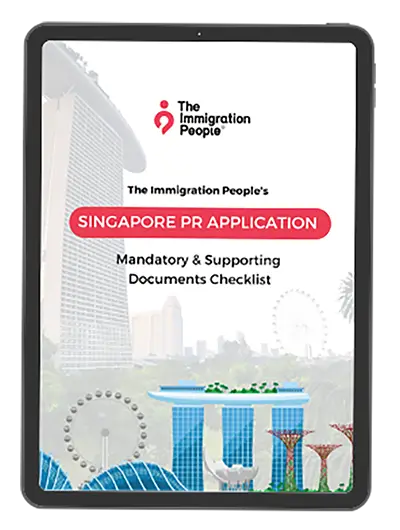The allure of becoming a Singapore permanent resident (PR) is strong due to the numerous benefits it provides, from high-quality life standards, excellent infrastructure, to a robust economy.
However, obtaining Singapore PR status is not guaranteed and involves a rigorous and scrutinising application process.
Understanding the PR Application Process
The PR application process in Singapore is managed by the Immigration and Checkpoints Authority (ICA). While it may seem as simple as filling up a PR application form, it is a meticulous process where every detail counts.
The ICA carefully evaluates each Singapore PR application based on various factors, including the applicant's economic contribution, qualifications, family ties in Singapore, and more. This rigorous evaluation ensures only the most deserving and potential contributors get the coveted PR status.
The Role of the Global Investor Programme

The Global Investor Programme (GIP) is another avenue for obtaining PR status in Singapore. It is primarily designed for entrepreneurs and investors who are willing to invest significantly in the country. However, even with a large investment, PR status under the GIP is not guaranteed. Applicants must meet stringent criteria and contribute to Singapore's economic development.
The National Service Obligation
Male Singapore PRs, like Singapore Citizens, are required to fulfil National Service obligations. This requirement not only plays a significant role in maintaining the country's security but also serves as a rite of passage for young males, fostering a shared identity and commitment to Singapore.
The potential obligation of National Service could affect an applicant's decision to apply for PR status.
The Unpredictable Nature of PR Applications
Despite meeting all the necessary criteria and requirements, the final decision to approve or reject a Singapore PR application lies entirely with the ICA.
The Singapore government's stringent and merit-based immigration policy means there are no guarantees of obtaining PR status.
PR Status Vs. Citizenship
It's also worth noting that PR status is different from Singapore Citizenship. While PR offers numerous benefits, there are distinct privileges reserved only for Singapore Citizens such as the red Singapore passport, voting rights, and more significant housing grants.
Thus, some might view PR as a stepping stone to eventual citizenship, but it's crucial to remember that neither PR nor Singapore Citizenship is guaranteed.
Factors Influencing PR Application

Factors like the applicant's qualifications, skills, experience, family ties in Singapore and more significantly influence the PR application's outcome.
An applicant’s potential contributions to the country's social and economic fabric are also considered. In short, becoming a PR in Singapore requires a comprehensive profile that demonstrates one's potential contributions to the country.
The Value of Permanent Residency
Singapore Permanent Residency brings a host of benefits, such as the right to live, work, and own property in the country. However, it also comes with obligations like the National Service for male PRs.
It is crucial to note that while PR status provides many rights enjoyed by citizens, there are certain limitations. For instance, PRs cannot vote in general elections or hold a Singapore passport.
The Process to Permanent Residency
The process to obtain Singapore Permanent Resident status is meticulous and stringent. From application to approval, each step is carefully managed and scrutinised by the ICA.
The journey doesn't end at obtaining the PR status either, as permanent residents are required to renew their Re-Entry Permit (REP) every five years. Failure to do so or being outside of Singapore without a valid REP could lead to loss of the PR status.
The Unpredictability of PR Approval
Although meeting the criteria significantly improves an applicant's chances, being granted Singapore PR is never a certainty. The ICA takes into consideration a multitude of factors beyond the applicant's control. Therefore, it's important for applicants to be prepared for all outcomes.
The Role of the Singapore Government

The Singapore Government plays a crucial role in maintaining rigorous standards for granting PR status. The country's immigration policies reflect a careful balance between population growth, societal cohesion, and economic progression. The government's prudent approach ensures that the quality of successful PR applications aligns with the country's long-term interests.
The transition from PR to Citizenship
For some, obtaining PR status in Singapore is a step towards becoming a Singapore Citizen. Transitioning from a Permanent Resident to a Citizen is another intensive process that requires meeting additional criteria. This transition is also not guaranteed and depends on a host of factors, including the individual's contributions to Singapore.
Conclusion
As we can see, while obtaining PR status in Singapore offers numerous benefits, the journey involves rigorous scrutiny and no guaranteed outcome. Being well-informed about the process, setting realistic expectations, and preparing thoroughly can increase one's chances of achieving Singapore Permanent Resident status.
Frequently Asked Questions On Singapore PR Application For Spouse
Can an LTVP holder apply for Singapore PR?
The foreign spouse of a Singapore PR or citizen who is an LTVP holder can apply for Singapore PR under the sponsored scheme.
A married EP holder and LTVP holder couple can also apply for Singapore PR, with the EP holder being the main applicant.
ICA will evaluate each PR application fairly. Want to know your eligibility chances? Let us calculate for you: https://www.tip.com.sg/pr-application-e-preliminary-profile-analysis.html
What Is the Success Rate for Spouse PR Applications in Singapore?
The success rate for spouse PR applications in Singapore varies based on numerous factors, such as the applicant's qualifications, financial standing, and family ties. The ICA does not release specific success rates, as each application is assessed case by case.
Can My Spouse Work in Singapore While Waiting for The PR Application Outcome?
Your spouse can work in Singapore while waiting for the PR application outcome if they have a valid work pass, such as an Employment Pass or S Pass.
Does My Spouse Need to Be in Singapore During the Application Process?
No, your spouse does not need to be physically present in Singapore throughout the entire application process. However, if the ICA requires, they may need to be in Singapore for certain stages, such as submitting biometrics or attending an interview.
Can My Spouse's Children from A Previous Marriage Also Apply For PR?
Your spouse's children from a previous marriage can apply for PR if they have legal custody over them. You will need to provide custody documents in the PR application.
The ICA will assess their eligibility based on the child's age, relationship with the applicant, and financial support.
Can My Spouse Apply for Citizenship After Obtaining the PR Status?
Yes, after obtaining permanent residency status, your spouse can look forward to applying for Singapore Citizenship.
The selection criteria for a Singapore Citizenship application are much stricter.
They must meet minimum eligibility criteria, which typically include being a PR for at least two years and not losing the PR status due to a case of an expired Re-Entry Permit (REP).
But before considering citizenship status, we encourage keen applicants to ensure that they consistently demonstrate good character, have strong family ties, and are well financially.
Will My Spouse Need to Complete National Service If They Are PR Approved?
From our experience handling PR applications for adult male applicants (typically in their 30s and above) under Sponsored Spouse Scheme, they are generally exempted from the National Service as they are not suitable for full-time NS at that age and did not enjoy any benefits before their PR.
Under the Enlistment Act, all male Singapore Citizens and Permanent Residents, unless exempted*, must serve National Service (NS). NS-liable persons are required to register for NS upon reaching 16 and a half years old and will be scheduled for enlistment at the earliest opportunity upon reaching 18 years old.
Deferment from NS for university studies will not be granted regardless of whether such studies have begun. Those pursuing full-time GCE ‘A’ Level or Polytechnic Diploma studies (or equivalent) may be granted deferment if they meet the deferment conditions stipulated by the Ministry of Defence.
*All male applicants must access www.cmpb.gov.sg for information on NS deferment, the pre-enlistment process and Exit Permit requirements before proceeding with the application.
Can My Spouse Maintain Their Existing Citizenship After Obtaining Singapore PR?
Yes, your spouse can maintain their foreign citizenship after obtaining Singapore PR.
However, if your spouse later decides to apply for and is granted the Singapore citizenship status, they must renounce their original citizenship, as Singapore does not allow dual citizenship.
Does My Spouse Need a Job Offer in Singapore to Apply For PR?
No, a job offer is not a strict requirement for a Singapore permanent residency application under the sponsored scheme.
However, having a job or a job offer in Singapore can strengthen your spouse's PR application, demonstrating their ability to contribute to the local economy and support themselves and their family.


